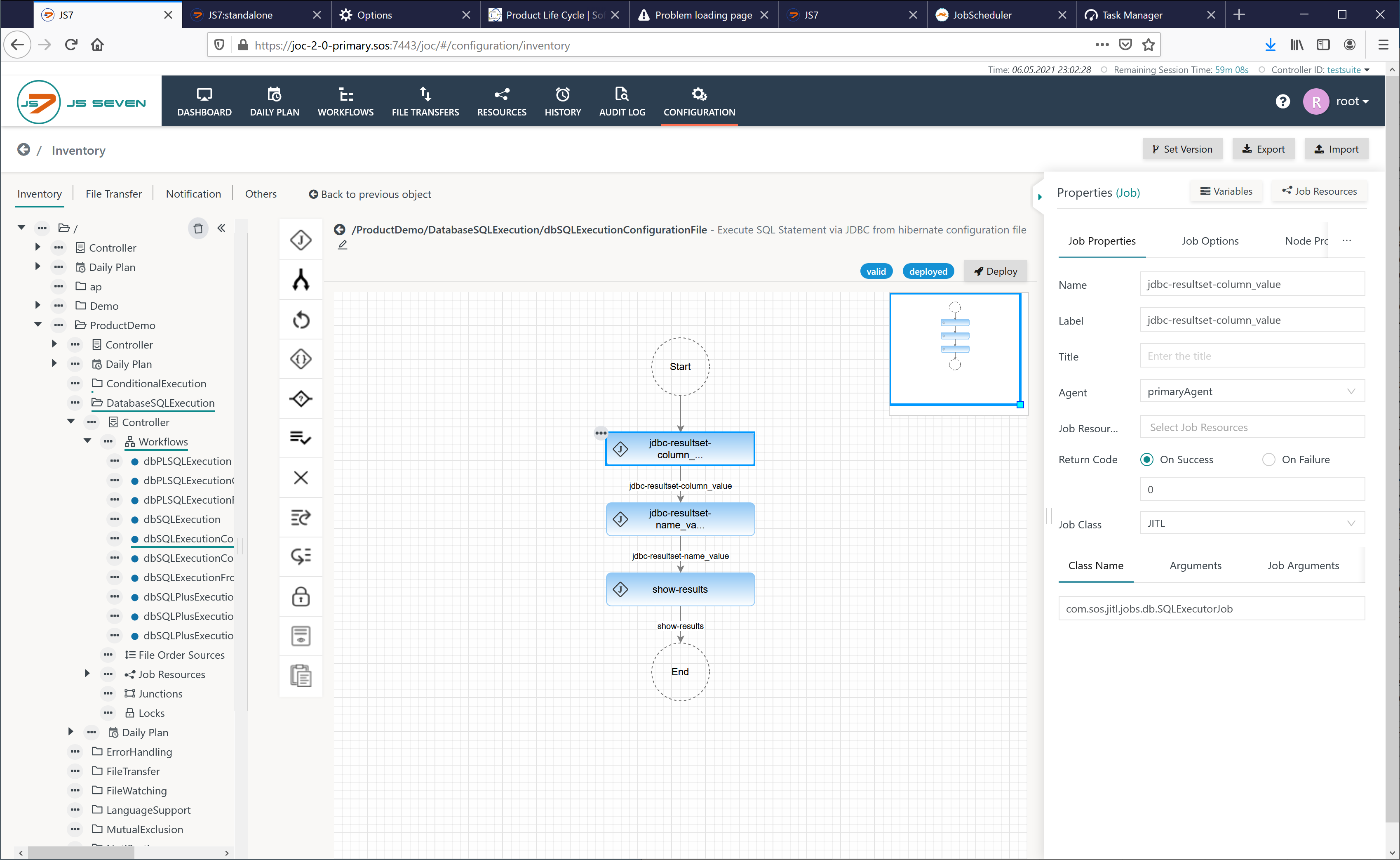Introduction
The SQLExecutorJob template is used to execute SQL statements and SQL procedures in a database.
- The job template makes use of JDBC connections and the Hibernate database access layer.
- The job template can be used to access any database for which a JDBC Driver is available with the Agent.
- The JS7 includes a number of JDBC Drivers for supported DBMS, see JS7 - Database.
- For other DBMS users can provide an individual JDBC Driver and store the Driver's .jar file with the .
/lib/user_libdirectory of the Agent installation.
- The job template supports use of a JS7 - Credential Store
- Delimitation
- Consider that specific SQL language extensions such as e.g. Oracle® PL/SQL are not supported by Hibernate.
- For Oracle® PL/SQL use the JS7 - JITL PLSQLJob
- For Oracle® SQL*Plus use the JS7 - JITL SQLPLUSJob
Usage
When defining the job consider
- to invoke the Wizard that is available from the job properties tab in the Configuration view and to select the JITL SQLExecutorJob and respective arguments from the Wizard
or
- to specify the
JITLjob class andcom.sos.jitl.jobs.db.SQLExecutorJobJava class name, then add arguments as explained from the below documentation.
Example
Download: dbSQLExecutionConfigurationFile.json
A SQLExecutorJob configuration can look like this:
The job's arguments can be specified as follows:
Documentation
Job Documentation including the full list of arguments: https://www.sos-berlin.com/doc/JS7-JITL/SQLExecutorJob.xml
The SQLExecutorJob class accepts the following arguments:
| Name | Required | Default Value | Purpose | Example |
|---|---|---|---|---|
command | yes | Carries the SQL statements. | ||
| no | ./config/hibernate.cfg.xml | Specifies the configuration file (XML) format for Hibernate connections, see JS7 - Database. By default Agents ship without hibernate configuration files, however, if a file with the default name is available then it will be applied. | |
| no | Raises a warning if the SQL statement creates a result set. | ||
| no | If stored procedures are called that return a result set then this argument has to be set to | ||
| no | Specifies how a result set is forwarded to order variables for subsequent jobs:
| ||
credential_store_file | Location of a credential store database (*.kdbx) | false | ./config/private/jobs.kdbx | |
credential_store_key | Location of a credential store key file (*.key) | false | ./config/private/jobs.key |
Explanation:
- Note that it is possible to define more than one instruction with the
commandargument.
Such instructions are then carried out in the order in which they are written and must be separated by a semicolon.- Some DBMS might require an additional newline character.
- For example
update MY_TABLE set a='foo' where b='bar'; commit;
- Note that order variables and arguments can be injected to the SQL statement(s) of the
commandargument by use of the${variable}syntax. - The SQLExecutorJob can be used with a credential store to hold sensitive arguments. For use of the
credential_store_*arguments see JS7 - Use of Credential Store with JITL Jobs.
Further Resources
- JS7 - JITL PLSQLJob
- JS7 - JITL SQLPLUSJob
- JS7 - JITL Common Parameters
- JS7 - Job Resources
- JS7 - Use of Credential Store with JITL Jobs

